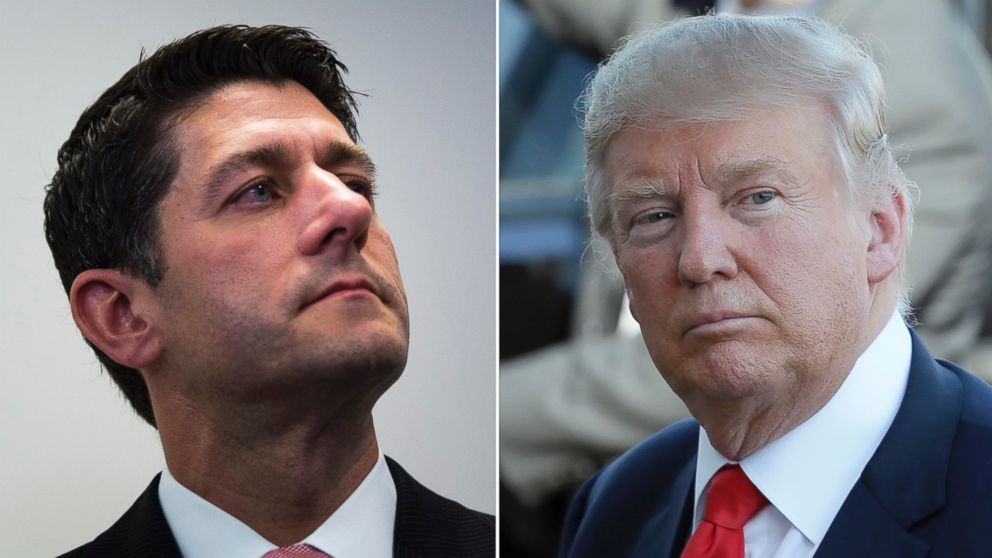 Because he will be holding the highest office in the country
in a matter of months, it is important to reflect on President Elect Trump’s
potential view of executive power. But does it REALLY matter all that much? The
past two presidential administrations have held vastly different views on the
reach of executive power. The Bush administration was squarely in the “we can
do pretty much whatever we want if we say national security” camp, while the
Obama administration held the view of “we generally need to ask Congress if we
want to do the big stuff”. While in theory, these views are highly divergent,
in practice they have, essentially, been one and the same. While the Bush
administration may not have believed it HAD to get Congressional permission to
invade Afghanistan, it asked anyway. The same can be said of Iraq. When
President Obama took office, it was easy for the administration to say they
needed permission, because they already had it (the 2001 and 2003
Authorizations for the Use of Military Force (AUMFs) are still being applied to
much of our international interventionism today). The change in stance was highly
rhetorical, being used as a pseudo “get out of jail free” card when they wanted
to punt a hard decision to the perpetually dysfunctional Congress (i.e. Syria).
Because he will be holding the highest office in the country
in a matter of months, it is important to reflect on President Elect Trump’s
potential view of executive power. But does it REALLY matter all that much? The
past two presidential administrations have held vastly different views on the
reach of executive power. The Bush administration was squarely in the “we can
do pretty much whatever we want if we say national security” camp, while the
Obama administration held the view of “we generally need to ask Congress if we
want to do the big stuff”. While in theory, these views are highly divergent,
in practice they have, essentially, been one and the same. While the Bush
administration may not have believed it HAD to get Congressional permission to
invade Afghanistan, it asked anyway. The same can be said of Iraq. When
President Obama took office, it was easy for the administration to say they
needed permission, because they already had it (the 2001 and 2003
Authorizations for the Use of Military Force (AUMFs) are still being applied to
much of our international interventionism today). The change in stance was highly
rhetorical, being used as a pseudo “get out of jail free” card when they wanted
to punt a hard decision to the perpetually dysfunctional Congress (i.e. Syria).
Now
that we have established that how Trump FEELS about executive power may not
actually have much bearing on how he ACTS as the executive, let’s go ahead and
explore that anyway. From early on in the campaign, it was pretty clear that
Trump’s view of the presidency looked more autocratic than the system many of
us are familiar with. He made statements about rewriting
laws single-handedly, deporting 12 million illegal immigrants,
banning all Muslims
from entering the country, and even
threatened political rivals. Vast over reaches threaten to further empower
what lawmakers on both sides of the aisle have claimed has become a dangerously
powerful presidency. Such a view of uninhibited executive authority working
against the legislature contributed greatly to Trump’s strife, particularly
with his own party leadership. I would say, without a doubt, that Trump’s
view of executive power has consistently fallen more in line with that of the
Bush administration.
So what
does it mean? As far as domestic policy is concerned, there could be broad
reaching implications for much of the American public. Or there could not be.
How much was said that was simply campaign rhetoric? How much of what Trump
said will he go through with? Domestically, he SEEMS to have softened up a bit,
so who knows? In terms of foreign policy, Trump has appeared to espouse a very
non-interventionist view. It takes decidedly less authority to do nothing than
to do something, so I think the ramifications of a very broad interpretation of
executive powers is less important. Less intervention, not more, could become
the norm. Deference to Russia in crises throughout the Middle East and into
Central Asia? Who knows? I’m not sure where we go from here, but if anything,
Trump’s view of executive power and its resultant foreign policy will not be
unlike the man himself, poorly informed and unpredictable.


1 comment:
Wouldn't call Trump unpredictable. Trump has been fairly consistent with his ideas of foreign policy. Who ever Trump appoints for Secretary of Defense and Secretary of State would signal the direction of his administration.
Also, a completely Republican congress would be more likely to grant Trump his cabinet picks and more likely to concede to Trump's policy proposals, giving him more leeway in foreign policy.
Post a Comment